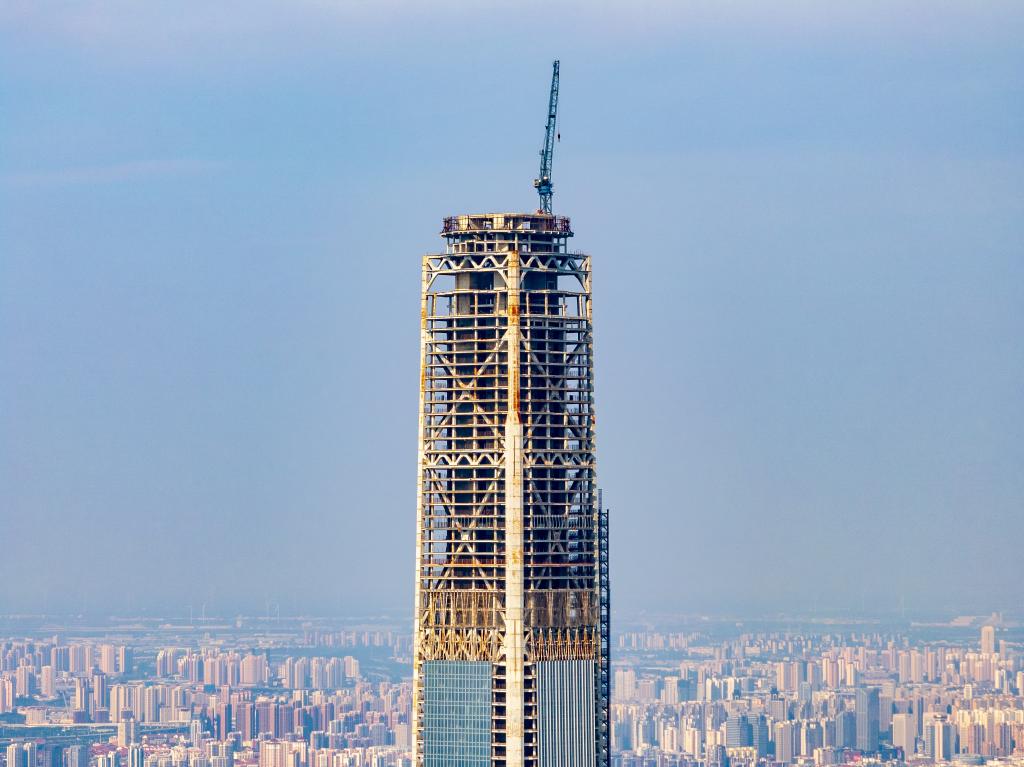The world’s tallest unoccupied building to resume construction — after a decade-long shutdown
China’s “walking stick” skyscraper now has some new legs.
Construction on the Goldin Finance 117 tower in Tianjin is set to resume after 10 years, .
Progress on the 1,959-foot-tall tower — making it the tallest unoccupied building in the world — stalled after the Chinese stock market crash of 2015. Now, a new construction permit means that this “ghost tower” can progress towards a projected completion date of 2027.
Chinese state media announced last week that construction of the 117-story tower, aptly nicknamed “China 117,” could resume, CNN Style reported.
Daring urban explorers have flocked to the imposing structure over the past decade, chronicling their death-defying climbs in viral videos, including Russian couple Angela Nikolau and Ivan Kuznetsov in 2016.
The skyscraper, which broke ground in 2008, was constructed with a system of “mega columns” to brace it against strong winds and earthquakes. The impressively lean tower was designed to host three office zones and a five-star hotel on the upper floors, according to architects P&T Group. A diamond-shaped atrium containing a pool and an observation deck will top the building.
Goldin Properties Holdings, the Hong Kong-based real estate developer behind the site, has since gone into liquidation, CNN reported.
The edifice was originally destined to be the centerpiece of a larger, mixed-use development catering to the upper echelons of the northern port city. CNN Style reported that the wider development scheme for attractions like a convention center and a polo club remains uncertain, but the new permit reportedly nods to “commercial corridors.”
The resumption of construction on both the Goldin Finance 117 Tower and the Chengdu Greenland Tower — a 1,535-foot skyscraper that has been on hold since 2023 — coincides with frequent headlines about China’s abandoned skylines and ghost cites.
“The national government has made it clear it wants to stabilize the real estate market,” said Qiao Shitong, a law professor at Duke University School of Law and expert on Chinese real estate, told CNN Style.









